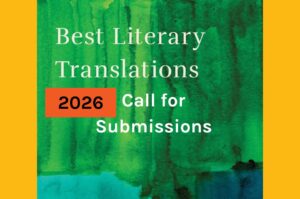
Prominent Egyptian writer Abdel Rahman al-Sharqawi’s classic Egyptian novel Egyptian Earth turned 70 years old this year. Saqi Books just published a reissue on February 6. The new edition is translated from Arabic into English by Desmond Stirling Stewart, with a foreword by Robin Ostle.
The republication of this classic Egyptian novel is an important milestone in African literature since Egyptian Earth was hugely inspired by 1952 Egyptian Revolution and is a classic text embodying the ideals of liberty amidst chaos. Al-Sharqawi’s novel was first published in 1954, two years after Egypt’s republic revolution. Fueled by nationalism, pan-Arabism and anti-imperialism, the revolution of 1952 overthrew King Farouk to create a republic free from foreign rule.
70 years later, the ideals of freedom and equality remain for many in Egypt feel as distant as ever. Egyptian Earth serves as a mirror reflecting the resilience and spirit of the Egyptian people. In an era of social upheaval and political uncertainty, this novel offers a compelling reminder of the power of community, solidarity, and collective action.
Egyptian Earth was Al-Sharqawi’s debut novel and is one of the most successful Egyptian novels ever published. It was made into a popular film by the well-known director Youssef Chahine. Read the full synopsis below:
A twelve-year old boy returns from school in Cairo to find his village torn by feuding and fear. A corrupt official has decreed that the peasants must irrigate their fields in five days instead of the customary ten – a demand that threatens to severely disrupt the life of this small community. It will take something extraordinary for the villagers to overcome the greedy ruling-class.
The schoolmaster Sheikh Hassouna urges the villagers to stand together if they want to keep custody of the land they have lived on for generations. But it takes many attempts, some disastrous, others. comical and touching, before they join forces against their oppressors.
Abdel Rahman al-Sharqawi (1920–1987) was a highly acclaimed writer and a pioneer of the innovative movement in Arabic poetry. Born into a peasant family in the Egyptian province of Menoufia, al-Sharqawi’s first works were published while he was a student at the University of Cairo, where he graduated in 1943. Al-Sharqawi was a prominent political activist, mainly involved in the defense of democracy, social justice, religious tolerance and true faith. His novels, short stories, poetry and plays were highly regarded for their realism and commitment to social issues.
Translator Desmond Stirling Stewart was a British writer and journalist. He worked in Baghdad, Beirut and Cairo for many years and published several books about Egyptian and Arabic culture and history. Foreword writer Dr Robin Ostle is an Emeritus Research Fellow in Modern Arabic at St John’s College. He is a founding editor of the Journal of Arabic and Middle Eastern Literatures.
Congrats to the Saqi Books team as well as al-Sharqai, Stewart, and Ostle on this 70th anniversary republication! Buy here.









COMMENTS -
Reader Interactions